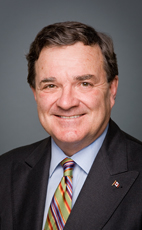Mr. Chair, we went through a time in Canadian political history, and certainly in the political economy, in the 1970s and 1980s and into the 1990s when it was common for federal governments, and provincial governments as well, to run deficits. The substantial public debt we have in Canada now is the sum of those accumulated deficits over those years. We do not want to go back to those years.
The official opposition in this place is saying it is going to spend an additional $60 billion. It voted for a bill this afternoon in the House of Commons that would require another $10 billion a year. There is $70 billion. How is the opposition going to pay for it? Now we are starting to hear about a carbon tax, as the Liberals call it, a tax on gasoline, a tax on electricity, a tax on home heating fuel, a tax that would have the greatest punitive burden on those with fixed incomes, poor seniors in this country, people receiving minimal pensions, and so on.
We do just the opposite. We allow pension splitting which will save people thousands of dollars this year when they file their income tax returns. The official opposition would do just the opposite. They want to prey on seniors and make it more difficult for them to pay their monthly bills by driving up costs by new taxation. It is not surprising, because the Liberal way of doing government is big spending, big tax increases, running deficits, and accumulating public debt.
For all of the reasons expressed by my hon. friend, this is not in the long term best interests of the country and it is not fair. We should think of the next generation and the generation after that. Why should we be living on borrowed money and asking the next generation to pay the costs? It is not fair intergenerationally. Most people would think it is not fair and would say that we should pay our bills as we go.
That is where we are going as a government. We are paying down large sums of public debt and reducing personal taxes. Every time we do it by means of the tax back guarantee. We intend to continue on that path, not on the path advocated on the other side of the House of high taxation, high spending, and running deficits.

